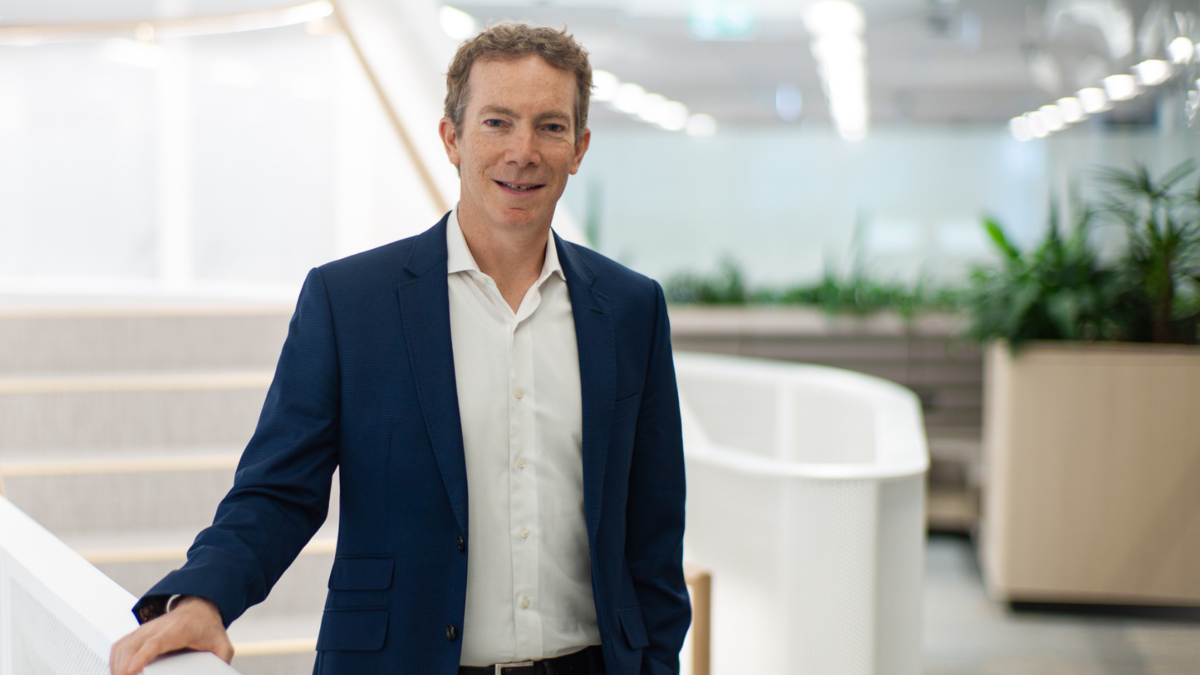‘People know what happens when Vanguard comes to market’
“It’s a special day for Vanguard – there’s no doubt about it,” Vanguard Australia managing director Daniel Shrimski told ISN on Friday (November 11). “It’s a product we think will improve the industry. What we bring to the market should start to move the needle. We have a retirement system that is world-leading or right up there, but we think there’s opportunity to build an even better system around a whole lot of areas – transparency, fee levels, innovation.”
Shrimski says that Vanguard isn’t pinning its differentiation solely on the scant 0.58 per cent fee it will charge for its MySuper product; it will also leverage the investment expertise it has accumulated over “45 years of globally managing money” and the nature of that MySuper product, which comes with 36 separate cohorts – yearly cohorts sit between the ages of 47 and 82 – and automatically rebalances at each birthday. For members below the age of 47, they’ll be in a 90/10 growth/defensive split; by age 82, they’ll be sitting on a 60/40 split. The offering is based off target-date funds in the US.
For any new entrant to the superannuation market, scale is an immediate problem. Even long-standing funds have thrown in the towel, with APRA expressing a view that funds need to be above $50 billion FUM in order to achieve sustainability. Vanguard is currently reaching out to 20,000 “word of mouth” superannuation prospects that have expressed interest in the product in the last 12 months, putting the word out among its 90,000 Australian personal investor clients, and looking to work with financial advisers – 65 per cent of Australian advisers “have at least a dollar with Vanguard”.
“We think that’s an area where for some advisers that’s going to be a really great opportunity to put their client into Vanguard Super – no platform fees, no cost, just the 58 basis points,” Shrimski says.
“We think there are other avenues to market – those are just three we’re focused on – but we think we have multiple entry points.”
“It’s a long game for us. It’s not about the first year or the second year. We think over time we can absolutely build scale and be meaningful in the Australian market, and be one of the big players… Across the board, people know what happens when Vanguard comes to market. That is, as we build scale we will continue to lower fees. We’ve done that locally and we’ve done that globally in any market we’ve entered into.”
It’s taken more than two years for Vanguard to bring the product to market and in that time, the superannuation landscape has changed significantly.
“We’ve learned that it’s a changing landscape,” Shrimski says. “One of the things that excites us is that more accountability is being put on trustees, as it should be. We think trustees should be held to account; we think they shouldn’t be able to hide behind investment performance.”
“We’ve learned that member experience and engagement matters… We don’t believe that Australians are as engaged as they should be, and some of our research shows that 25 per cent of Australians don’t know what their super balance is. 28 per cent have never initiated contact with their fund. That stuff is meaningful.”
Still, the forces arrayed against Vanguard’s low cost entry are formidable. The industry funds have led the way on slashing fees and now control a huge chunk of the market, while some retail funds – like Mercer Super – are resurgent.
“The competition is strong as it is, but it’s ripe for disruption,” Shrimski says. “It’s not just about fees, or investment performance, or expertise, or our brand. It’s about all of them. It’s not on element that we’re differentiating on. We believe it’s across multiple. We’re moving the needle and I think there’s a long way to go to get to what is best for the member.”
Launching a super product is no easy feat, but rumours swirled in that two-year period that some spanner in the works had delayed the process. For his part, Shrimski is unconcerned with rumours – or rushing.
“We’re here for the long-term. I’m not concerned about three months earlier or three months later. What’s been important for us over the past two years has been to get every I dotted and every T crossed. It’s a massive responsibility that we take on to manage Australia’s retirement savings, and therefore we wanted to make sure that we were ready to push that button.”











